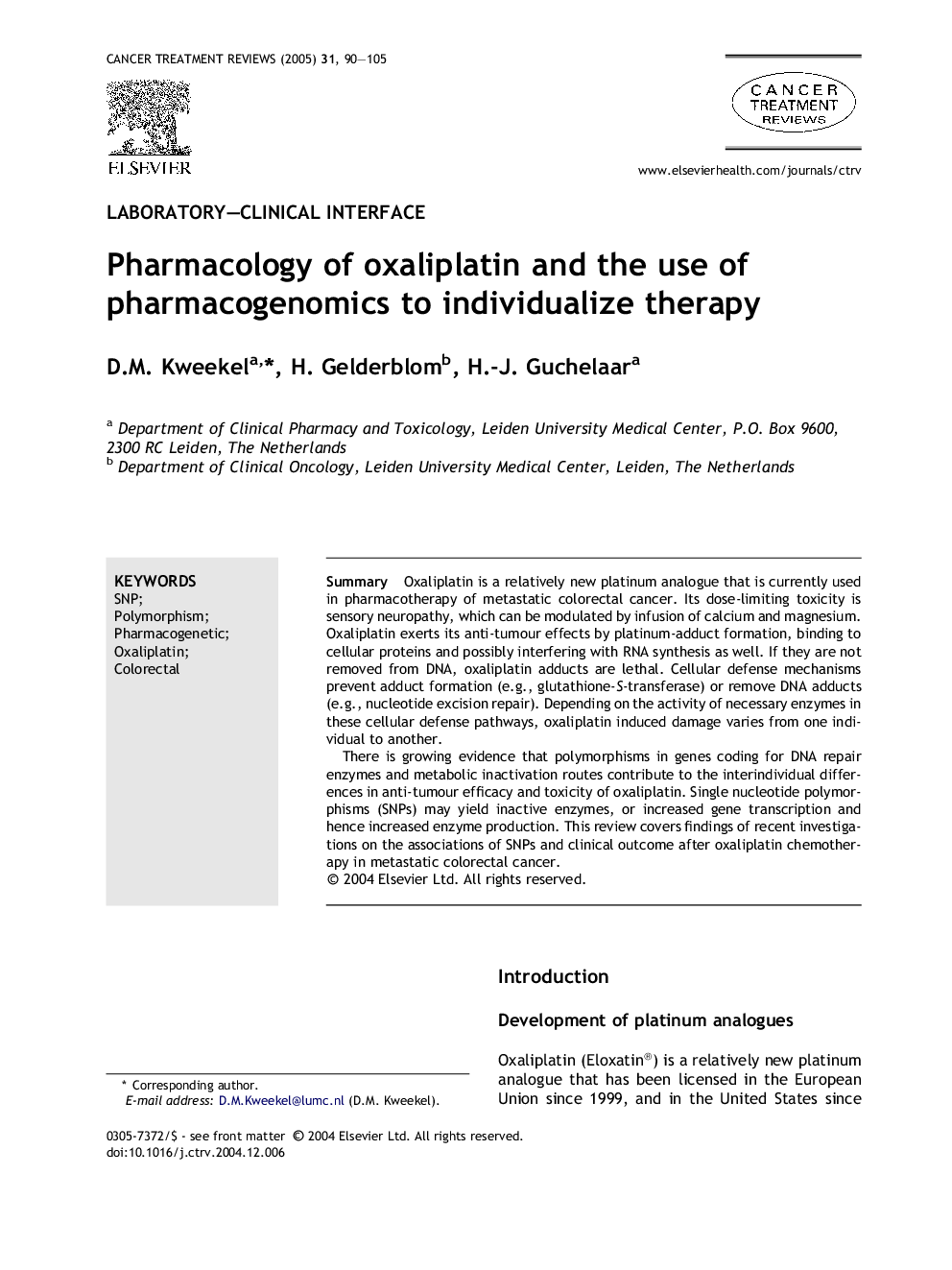| Article ID | Journal | Published Year | Pages | File Type |
|---|---|---|---|---|
| 9336697 | Cancer Treatment Reviews | 2005 | 16 Pages |
Abstract
There is growing evidence that polymorphisms in genes coding for DNA repair enzymes and metabolic inactivation routes contribute to the interindividual differences in anti-tumour efficacy and toxicity of oxaliplatin. Single nucleotide polymorphisms (SNPs) may yield inactive enzymes, or increased gene transcription and hence increased enzyme production. This review covers findings of recent investigations on the associations of SNPs and clinical outcome after oxaliplatin chemotherapy in metastatic colorectal cancer.
Related Topics
Health Sciences
Medicine and Dentistry
Oncology
Authors
D.M. Kweekel, H. Gelderblom, H.-J. Guchelaar,
